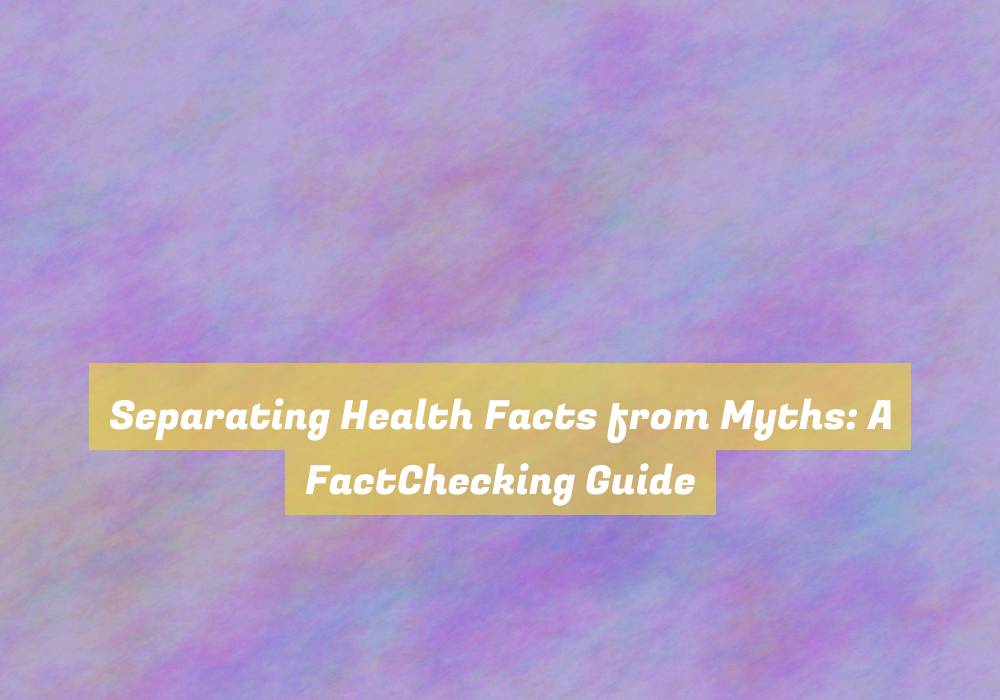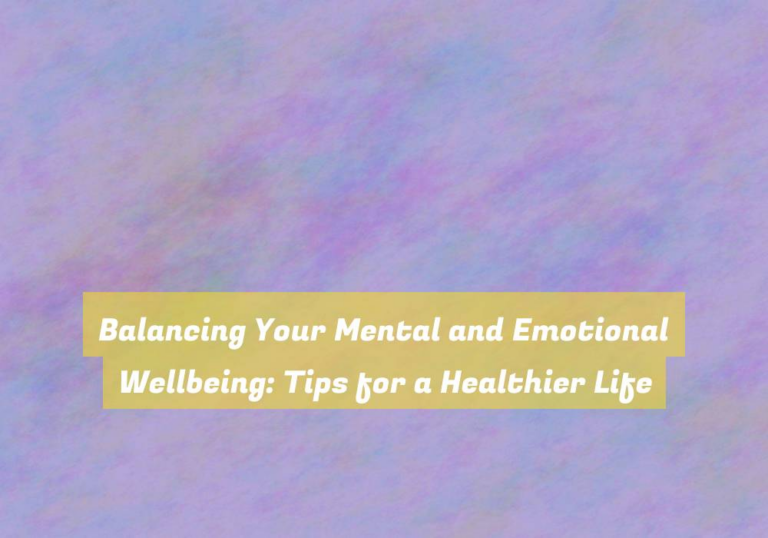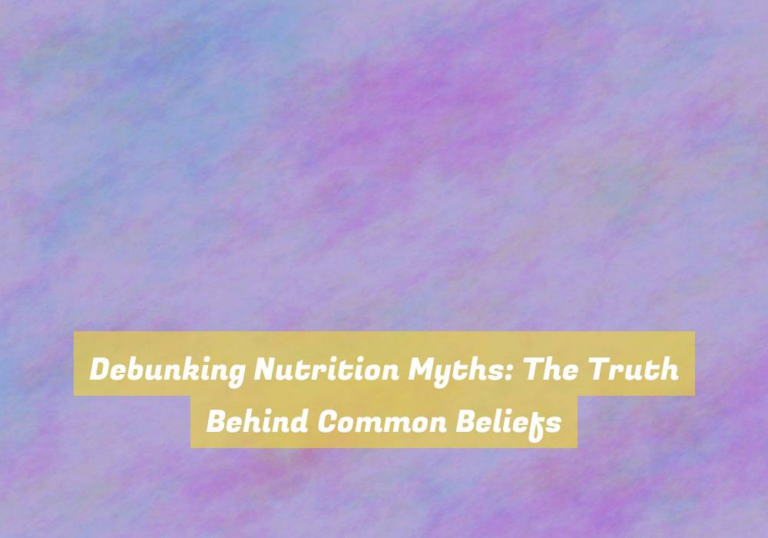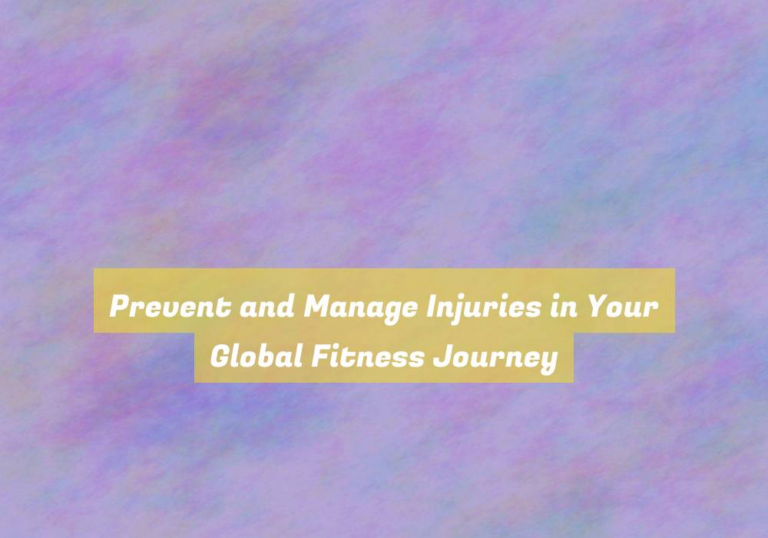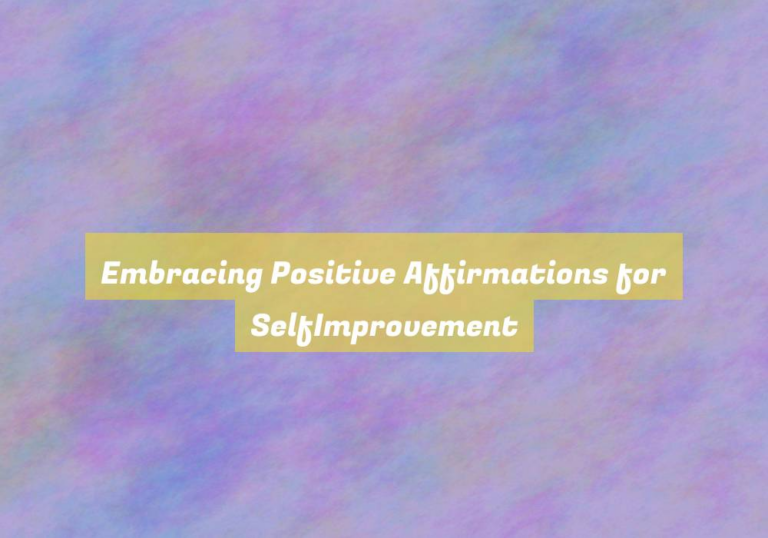Separating Health Facts from Myths: A FactChecking Guide
So, youG??ve heard that gluten is the root of all evil and that doing a juice cleanse will solve all your problems. ItG??s time to separate health facts from myths.
In a world filled with wellness trends and conflicting advice, it can be challenging to know what to believe. But fear not, because in this factchecking guide, weG??ll explore the most common health myths and provide you with the tools to navigate through the sea of misinformation.
Stay tuned to uncover the truth behind dietary fads, medical misconceptions, exercise myths, and wellness trends. You wonG??t want to miss out on this essential knowledge for making informed decisions about your health.
Evaluating Dietary Fads
When evaluating dietary fads, itG??s essential to critically assess the scientific evidence and consider the long-term sustainability of the proposed dietary changes. Many fad diets make bold claims about rapid weight loss or improved health without sufficient scientific backing. Before jumping on the bandwagon of any trendy diet, itG??s crucial to evaluate its foundation.
Look for reputable studies and evidence supporting the dietG??s claims. Consider whether the proposed changes are realistic and sustainable for the long term.
Be wary of diets that eliminate entire food groups or severely restrict calorie intake. These extreme measures can lead to nutrient deficiencies and are often unsustainable in the long run.
Additionally, seek out professional opinions from registered dietitians or nutritionists who can provide personalized guidance based on your individual needs and health history.
Uncovering Medical Misconceptions
Uncovering medical misconceptions requires a critical examination of widely held beliefs and a willingness to challenge the status quo in health-related information. ItG??s essential to question assumptions and seek evidence-based explanations.
One common misconception is that antibiotics are effective against viral infections. The reality is that antibiotics only work against bacterial infections, and taking them unnecessarily can contribute to antibiotic resistance.
Another prevalent misconception is that natural remedies are always safe. While natural products can have health benefits, they can also have side effects and interactions with medications.
Additionally, the belief that vaccines cause autism has been thoroughly debunked by scientific research.
ItG??s crucial to approach health information with a discerning eye, considering the sources and examining the evidence. Look for reputable sources such as medical journals, government health agencies, and trusted healthcare professionals.
Debunking Exercise Myths
To continue our exploration of separating medical facts from myths, letG??s now turn our attention to debunking exercise myths.
One common myth is that you need to exercise for hours every day to see results. In reality, short bursts of high-intensity interval training can be just as effective, or even more so, than longer workouts.
Another prevalent myth is that lifting weights will make you bulky. In fact, resistance training helps to build lean muscle and increase metabolism, leading to a toned and fit appearance.
Additionally, thereG??s a misconception that you can target fat loss in specific areas of the body through exercises like crunches or leg lifts. However, spot reduction isnG??t supported by scientific evidence, and overall fat loss through a combination of cardio, strength training, and a balanced diet is the key to reducing body fat.
Lastly, the belief that exercise alone can compensate for a poor diet is a myth. While exercise is crucial for overall health, a nutritious diet is equally important for achieving and maintaining a healthy weight.
Navigating Wellness Trends
Navigating wellness trends requires a critical eye and a discerning approach to deciphering which practices are truly beneficial for your health and well-being.
In todayG??s age of information overload, it can be challenging to separate genuine wellness trends from passing fads.
When evaluating a wellness trend, consider the source of the information. Is it backed by reputable scientific studies or is it merely anecdotal evidence? Be wary of sensationalized claims or miracle cures that promise unrealistic results.
Instead, focus on sustainable practices that have a solid foundation in scientific research. Remember, a one-size-fits-all approach to wellness doesnG??t exist. What works for one person may not work for another.
Be cautious of extreme or restrictive trends that could potentially harm your physical or mental well-being. Listen to your body and prioritize practices that promote balance and overall health.
Conclusion
Now that you have the tools to separate health facts from myths, you can make informed choices about your diet, medical decisions, exercise routine, and wellness practices. Remember to fact-check any new information you come across and consult reliable sources.
By staying informed and critically evaluating health claims, you can prioritize your well-being and avoid falling for misleading trends and misconceptions.
Stay healthy and informed!

